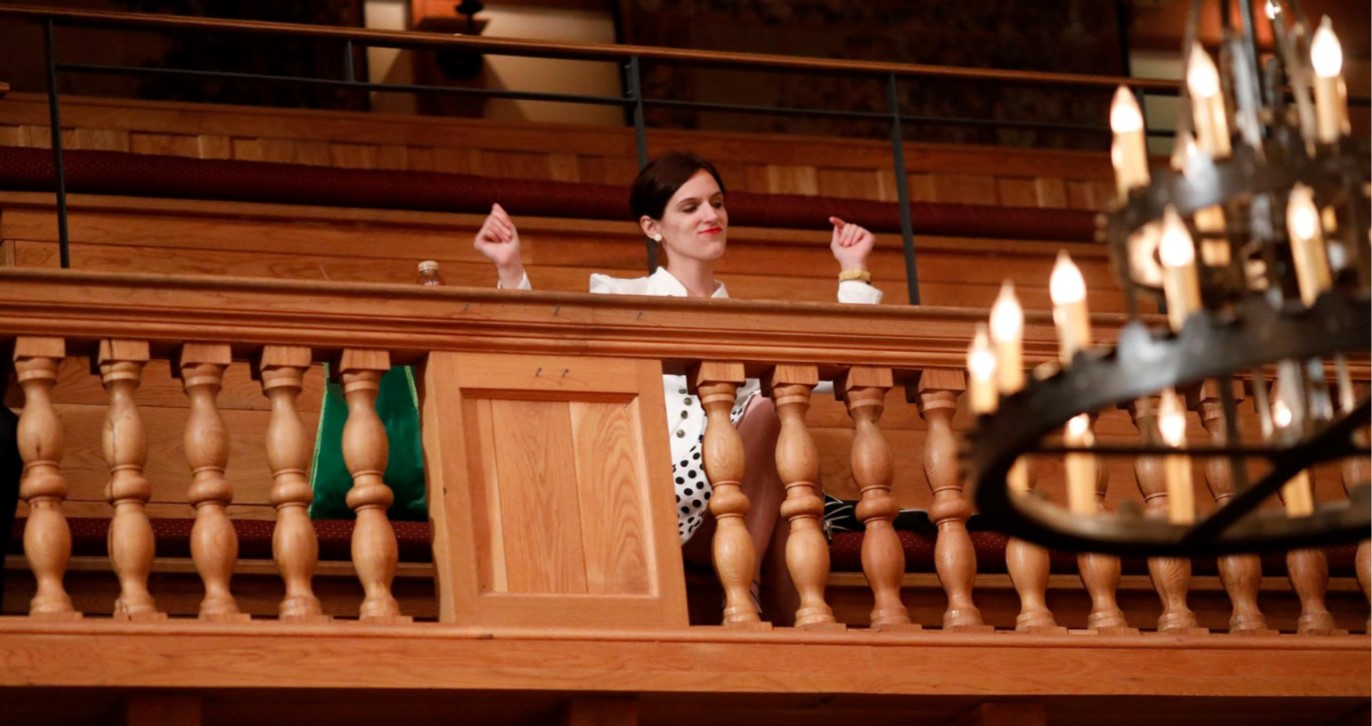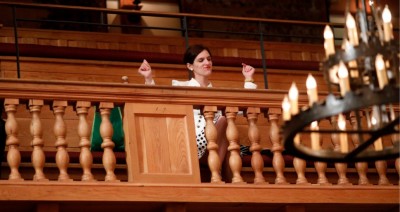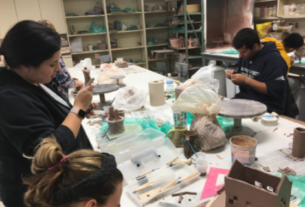
Life Lessons From William Shakespeare
Madison Weikle, staff writer
“The world sucks… being a teenager sucks,” states Lia Wallace, college prep programs manager and camp director of the American Shakespeare Theater Company in Staunton, Virginia. Wallace was born and raised by a Shakespeare-centered family in Philadelphia. Although she reveled in the nerdy stigma of being a “Shakespeare kid,” she admits she never really enjoyed his works until her college years.
While attending the Gallatin School of Individualized Study at NYU, a former director of hers, Patrick Spottiswood, recommended she go down to Staunton, Virginia, and take up an internship with the Blackfriars Playhouse. Wallace was doubtful she would stay but decided to check it out anyways. While investigating the playhouse, she fell in love with a production of Richard III starring Benjamin Curns, and thus began her journey into the world of Shakespeare education.

Photography courtesy of Lindsey Walters.
She was drawn to working with teenagers because she liked to “be real” with them. She explained she understands teenagers are developing many new hormones without the hardware to deal with them, and because of this they do not have the ability to realize their current feelings are just temporary, to them everything is permanent. This is where the American Shakespeare Center Theater Camp comes into play.
Wallace explained, “Camp is about getting prepared for life.” She teaches campers to prepare for life by performing Shakespearean plays. Shakespeare deals with characters who lack the same skills teenagers have yet to learn, like dealing with death, sexuality, and love. Wallace told me, “We use Shakespeare to teach these skills, and we use performance to test them.”
She is not only working hard on helping children diversify their skill sets, she is also working on diversifying the crowd the theater attracts. “Camp is super white, and it is super expensive,” she admitted. Wallace realizes that the cost of the camp creates a huge roadblock for diversifying the American Shakespeare Center’s educational outreach. However, she is determined to break the financial boundaries, and is putting a ton of work into offering a full scholarship for one camper each year. She recognizes it is not a lot but it is a step, and she is continuing to put effort into reaching out and spreading the skills of Shakespeare to every child she can. She stated, “If I can make life for one teenager suck less, that’s my goal.”







